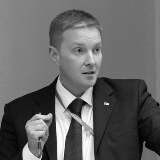Space power and Irregular Warfare in Space

The theory of spacepower is shaped by the fundamental nature of all warfare, along with universal principles of strategy and the essential unity of all strategic experience. Warfare is warfare, no matter the domain of operations, and consequently, the space strategist can look to historical experience and knowledge of past conflicts to help gain insights into the functioning of spacepower and space strategy.
Many of today’s most pressing security concerns are best considered using an irregular warfare and competition strategic lens. These current national security space concerns include direct-ascent, anti-satellite testing causing an inordinate amount of debris and threatening others in an indiscriminate manner; uncooperative rendezvous and proximity operations; purposeful lasing of space systems; and jamming of satellite communications and frequency spectrum. All of these coercive and provocative actions fall short of the use of regular military force and armed conflict, and so by definition, these activities are irregular.
Remarkably, these ongoing space activities are not widely recognized as being irregular in style or form. The value of using an irregular framework to contemplate existing space security concerns is that historical experience and strategic understanding can be used to consider solutions to known problems, as well as provide future insights into the solutions for problems as yet undiscovered.
Dr James WE Smith, Laughton-Corbett Research Fellow at the War Studies Department, will host Dr John Klein's presentation on space power and irregular warfare, followed by a Q&A session.
Speaker
Dr John Klein, callsign “Patsy,” is a Senior Fellow and Strategist at Falcon Research, Inc., and also instructs space policy and strategy courses at George Washington University’s Space Policy Institute, Georgetown University’s Strategic Studies Program, and Institute of World Politics at the undergraduate, graduate, and doctorate levels respectively. He routinely writes on space strategy, deterrence, and the Law of Armed Conflict. He is the author of the books Space Warfare: Strategy, Principles and Policy (2006), Understanding Space Strategy: The Art of War in Space (2019), and the recently released Fight for the Final Frontier: Irregular Warfare in Space (2023), along with a score of other book chapters and articles.
Patsy is also a retired Commander of the United States Navy, receiving his commission through the NROTC program at Georgia Tech. He served for 22 years as a Naval Flight Officer, primarily flying in the S-3B Viking carrier-based aircraft. Patsy supported combat operations in Iraq and Afghanistan. His tours included the Executive Officer of Sea Control Squadron Twenty-Four and the final Commanding Officer of Sea Control Weapons School.
Patsy holds a master’s in Aeronautical Engineering from the Naval Postgraduate School, a master’s in National Security and Strategic Studies from the Naval War College, and a PhD in Strategic Studies from the University of Reading, England. Patsy is a distinguished graduate of the U.S. Naval Test Pilot School. He has over 2,700 flight hours in 27 different types of aircraft and over 600 carrier-arrested landings.
Search for another event
